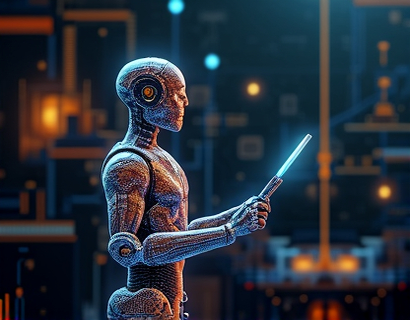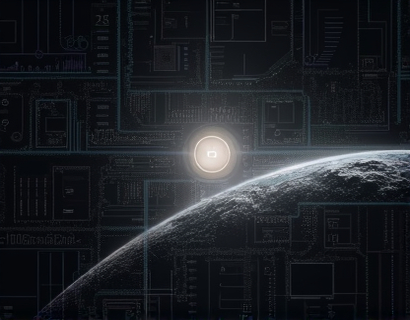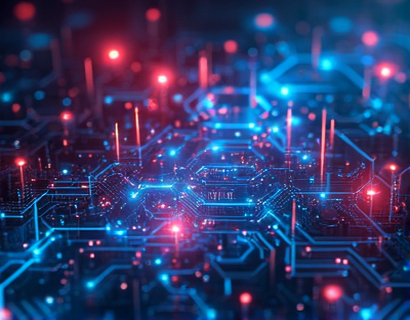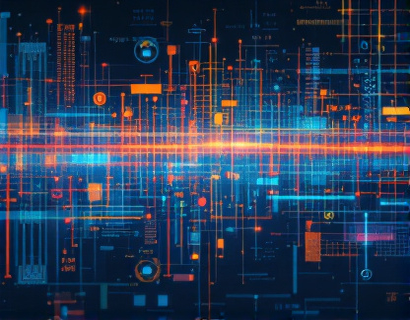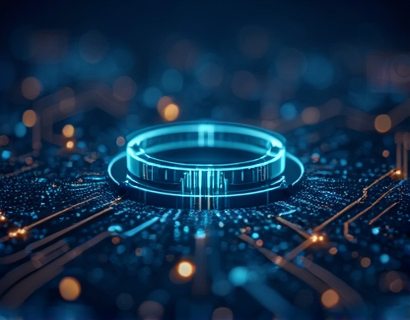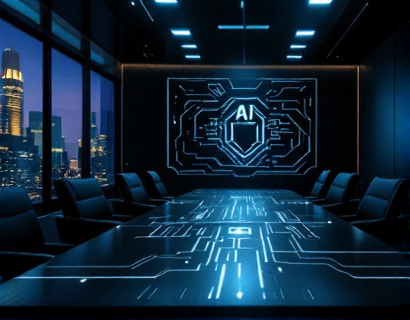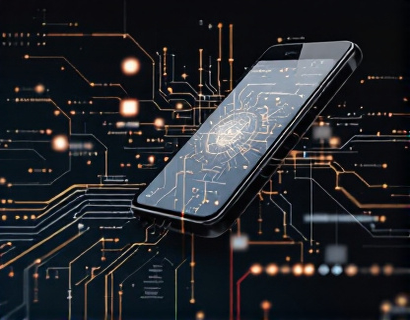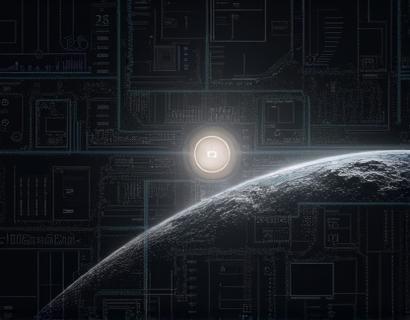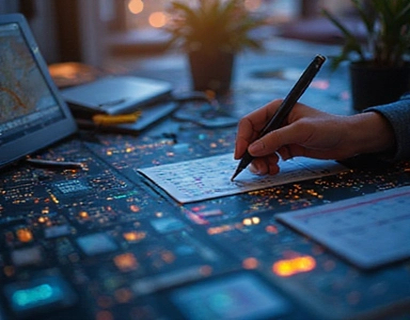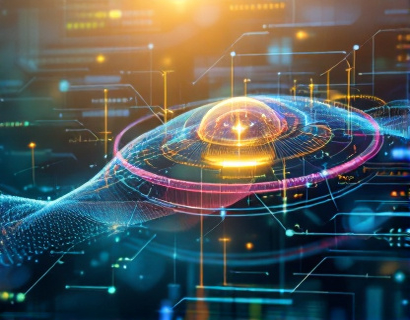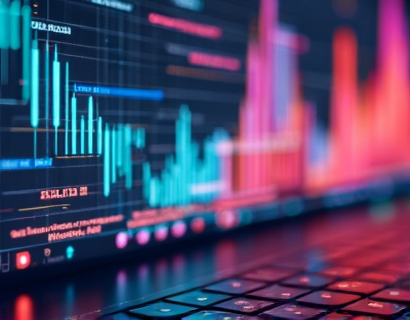Unleashing the Future of Digital App Solutions with Advanced Technology
The intersection of cryptocurrency and artificial intelligence (AI) is giving birth to a new era of digital innovation. This fusion is not just a technological curiosity but a transformative force that is reshaping how we interact with digital applications and services. As we delve into this topic, it's essential to understand the foundational technologies that are driving this change.
Cryptocurrency, since its inception with Bitcoin in 2009, has evolved from a niche digital currency to a robust ecosystem that underpins a wide array of financial and non-financial applications. The underlying blockchain technology, a decentralized and immutable ledger, ensures transparency, security, and trust in transactions. This technology has the potential to revolutionize various industries by providing a secure and efficient way to conduct transactions without the need for intermediaries.
Artificial intelligence, on the other hand, is rapidly advancing, driven by improvements in machine learning, natural language processing, and data analytics. AI's ability to learn from vast amounts of data, recognize patterns, and make decisions autonomously is transforming sectors ranging from healthcare to finance. When combined with blockchain, AI can achieve even greater heights, creating systems that are not only secure and transparent but also intelligent and adaptive.
Enhancing Security with Blockchain and AI
One of the most significant benefits of integrating blockchain and AI is the enhancement of security measures in digital applications. Traditional security protocols often rely on centralized systems, which can be vulnerable to breaches and hacks. Blockchain's decentralized nature, combined with AI's advanced analytics, creates a formidable defense against cyber threats.
AI can monitor blockchain networks in real-time, detecting anomalies and potential security breaches with high accuracy. Machine learning algorithms can analyze patterns in transaction data to identify suspicious activities, such as unusual transaction volumes or unexpected access patterns. This proactive approach to security ensures that any potential threats are identified and mitigated before they can cause significant damage.
Moreover, AI can enhance the security of smart contracts, which are self-executing contracts with the terms directly written into code. AI can verify the integrity of smart contracts by analyzing their code for vulnerabilities and ensuring that they function as intended. This reduces the risk of errors and malicious attacks, making smart contracts more reliable and trustworthy.
Improving User Experience through AI-Driven Interfaces
The user experience (UX) of digital applications is crucial for adoption and retention. AI, when integrated with blockchain, can significantly enhance UX by creating more intuitive and personalized interfaces. Blockchain ensures that user data is secure and ownership is verifiable, while AI can leverage this data to provide tailored experiences.
For instance, AI-powered chatbots can interact with users in a natural and conversational manner, providing instant support and guidance. These chatbots can be deployed on blockchain-based platforms, ensuring that user interactions are private and secure. By analyzing user behavior and preferences, AI can customize the interface and functionality of applications to meet individual needs, making the user experience more seamless and enjoyable.
Additionally, AI can optimize the onboarding process for new users. By analyzing user data and behavior, AI can guide users through the setup process, recommending relevant features and settings. This not only simplifies the initial experience but also increases user satisfaction and engagement.
Streamlining Operations with Smart Contracts and AI
Blockchain and AI can also revolutionize the way businesses operate by automating and optimizing various processes. Smart contracts, when combined with AI, can automate complex workflows and decision-making processes, reducing the need for manual intervention and minimizing errors.
In supply chain management, for example, AI can predict demand and optimize inventory levels, while smart contracts can automate the execution of transactions based on predefined conditions. This ensures that payments are made only when certain criteria are met, such as the delivery of goods or the completion of a service. The combination of AI and blockchain in this context enhances efficiency, reduces costs, and improves transparency throughout the supply chain.
In the realm of finance, AI-driven algorithms can analyze market data and make informed investment decisions, while smart contracts can execute trades automatically. This not only speeds up the trading process but also reduces the risk of human error and fraud. The decentralized nature of blockchain ensures that all transactions are recorded and verifiable, adding an extra layer of trust and accountability.
Enhancing Data Privacy and Ownership
Data privacy and ownership are critical concerns in the digital age. Blockchain technology, with its decentralized and transparent nature, offers a robust solution to these issues. When combined with AI, the protection and management of user data become even more sophisticated.
AI can help in managing and securing user data by implementing advanced encryption techniques and access control mechanisms. Blockchain ensures that user data is stored in a tamper-proof manner, and AI can monitor access patterns to detect and prevent unauthorized access. This dual approach not only safeguards user data but also gives users greater control over their personal information.
Moreover, AI can assist in compliance with data protection regulations such as GDPR by automating the process of data subject requests and ensuring that user data is handled in accordance with legal requirements. This not only protects users but also helps organizations avoid costly fines and reputational damage.
Innovative Applications in Various Industries
The potential applications of blockchain and AI are vast and varied, extending beyond the realms of security, UX, and operations. In the healthcare sector, for example, AI can analyze medical data stored on a blockchain to provide accurate diagnoses and personalized treatment plans. The immutable nature of blockchain ensures that patient records are secure and tamper-proof, while AI can process and interpret complex medical data with high precision.
In the realm of finance, blockchain and AI can enable decentralized finance (DeFi) platforms that offer a wide range of financial services without traditional intermediaries. AI-driven algorithms can assess creditworthiness, detect fraud, and optimize investment strategies, all while ensuring transparency and security through blockchain.
In the entertainment industry, blockchain can be used to create and manage digital assets such as NFTs (non-fungible tokens), which represent unique digital items. AI can enhance the creation and distribution of these assets by analyzing market trends and user preferences, ensuring that creators can monetize their work effectively. The combination of blockchain and AI also enables secure and transparent royalty distribution, ensuring that artists and content creators receive fair compensation for their work.
Challenges and Considerations
While the integration of blockchain and AI offers numerous benefits, it also presents several challenges that need to be addressed. One of the primary concerns is the scalability of blockchain networks. Current blockchain technologies often struggle to handle high transaction volumes, which can limit their practical applications.
To address this, researchers are developing more efficient consensus mechanisms and layer 2 solutions that can process transactions faster and at a lower cost. Additionally, the energy consumption associated with blockchain, particularly proof-of-work systems, is a significant environmental concern. Transitioning to more sustainable consensus algorithms, such as proof-of-stake, can help mitigate this issue.
Another challenge is the regulatory landscape. As blockchain and AI technologies evolve, governments and regulatory bodies are grappling with how to govern these innovations. Ensuring compliance with existing laws while fostering innovation requires a balanced and forward-thinking approach. Collaboration between technologists, policymakers, and industry stakeholders is essential to create a regulatory framework that supports responsible and ethical use of these technologies.
The Future of Digital App Solutions
The convergence of blockchain and AI is poised to redefine the future of digital app solutions. By leveraging the strengths of both technologies, developers can create applications that are not only secure and efficient but also intelligent and user-centric. As these technologies continue to mature, we can expect to see more innovative applications across various industries, from healthcare and finance to entertainment and beyond.
The potential for blockchain and AI to transform digital interactions is immense. By ensuring data integrity, enhancing user experiences, and automating complex processes, these technologies are paving the way for a more connected, secure, and intelligent digital world. As tech enthusiasts and professionals, embracing and exploring these advancements will be crucial in shaping the future of technology.






